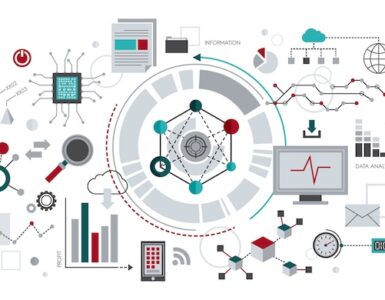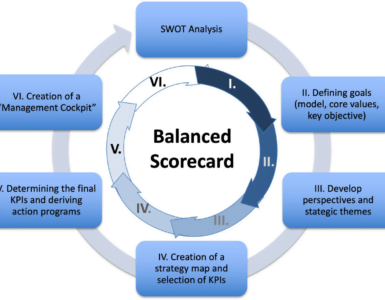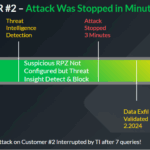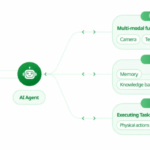corporate intelligence (BI) is a technology-driven process that analyzes corporate data to deliver actionable information to executives and managers, allowing them to make better business decisions.
Business intelligence is a broad word that includes data mining, process analysis, performance benchmarking, and descriptive analytics. Business intelligence (BI) parses all of a company’s data and offers easy-to-digest reports, performance measurements, and trends to help management make choices.
Contents

How Can BI Be Useful?
To be helpful, BI must strive to improve the accuracy, timeliness, and volume of data.
These needs include identifying new ways to record information, checking for inaccuracies, and arranging the information in a way that allows for broad analysis.In actuality, however, firms have data that is unstructured or in many formats, making it difficult to acquire and analyze. As a result, software companies offer business intelligence solutions to help people make better use of data. These are enterprise-level software programs that integrate a company’s data and analytics.
Although software solutions grow and become more complex, data scientists must still balance speed and depth of reporting.
Some of the insights emerging from big data have firms scurrying to capture everything, but data analysts can typically filter out sources to uncover a subset of data points that can indicate the overall health of a process or business area. This reduces the requirement to record and convert all data for analysis, saving analytical time and enhancing reporting speed.
Types of BI Tools and Software
BI tools and software exist in a variety of formats. Let’s take a brief look at a few common sorts of business intelligence solutions.
Spreadsheets: Microsoft Excel and Google Docs are among the most popular BI tools.
Reporting software is used to compile, organize, filter, and present data.
Data visualization software converts datasets into simple, visually attractive graphical representations, allowing users to get insights rapidly.
Data mining technologies use techniques such as artificial intelligence, machine learning, and statistics to “mine” massive amounts of information for patterns.
Online analytical processing (OLAP) solutions enable users to study datasets from a range of business viewpoints.
Benefits of Business Intelligence
There are numerous reasons why businesses adopt BI. Many people utilize it to support a variety of operations, including hiring, compliance, production, and marketing. BI is a basic business value; it is rare to identify a company segment that would not benefit from having more information to deal with.
Companies can reap numerous benefits from incorporating BI into their business models, including faster, more accurate reporting and analysis, enhanced data quality, more employee satisfaction, lower costs, increased revenues, and the opportunity to make better business decisions.
Business intelligence (BI) was developed to assist businesses in avoiding the problem of “garbage in and garbage out,” which is caused by erroneous or insufficient data processing.
If, for example, you are in control of production schedules for many beverage factories and sales are increasing month after month in a specific region, you can approve more shifts in near real time to ensure that your factories can meet demand.
Similarly, if a cooler-than-normal summer begins to have an impact on sales, you can rapidly shut down that manufacturing. This production manipulation is just one illustration of how, when applied correctly, BI may enhance profits while lowering expenses.
Examples of BI.
Coca-Cola Bottling had a difficulty with its daily manual reporting processes, which limited access to real-time sales and operations data.
However, by replacing the manual method with an automated business intelligence system, the organization was able to totally streamline the process and save 260 hours every year. The company’s workforce can now easily examine indicators such as delivery operations, budget, and profitability with a few clicks.
What is Power BI?
Microsoft offers Power BI, a business analytics product. According to the firm, it enables individuals and organizations to connect to, model, and visualize data via a scalable platform.
What is Self-Service Business Intelligence (BI)?
Self-service BI is an analytics approach that enables non-technical users to access and explore data. In other words, it allows anyone throughout the organization, not just those in the IT department, to have control over data.
What are the disadvantages of self-service BI?
The disadvantages of self-service BI include end users’ false feeling of security, exorbitant license fees, a lack of data granularity, and, in some cases, excessive accessibility.






















































